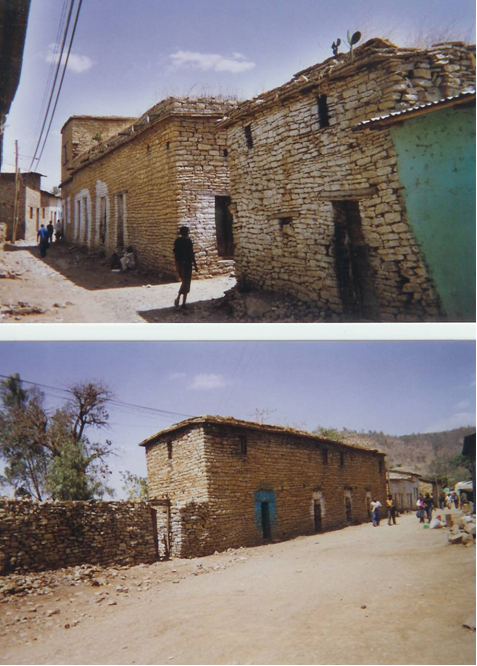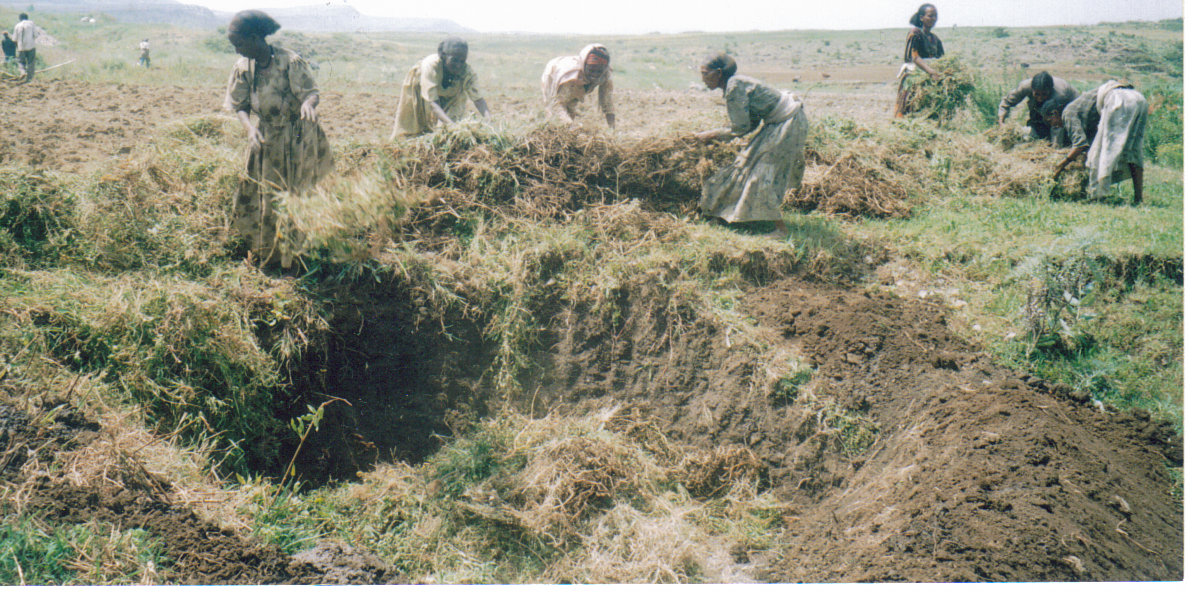Welcome

Ainalem, Enderta, Tigrai
View:
Like in other parts of the world population pressure on land is immanent in Ethiopia. This is being accelerated by increasing agricultural activities in response to the need to produce more crops for consumption and export. If not wisely guided and controlled, this increasing agricultural activities will result ultimately in sever degradation of the ecosystem brought about by deforestation, use of virgin lands, soil erosion and loss of nutrients, depletion of water sources, etc. Incipient environmental degradation is always concealed, giving a false impression of normality. However, the muddy brownish colored water that we see on the plains, streets and the flood during light and heavy down pours is an alarm bell announcing the arrival of sever soil erosion.
Soil erosion has appeared, because the traditional fallow cultivation with its bush fallowing has started to give way. The soil is being exposed for longer periods without adequate vegetation cover as a result of cropping the land for longer periods (longer than the traditional five years) and resting it for shorter periods (shorter than the traditional two years or so). The short resting period is used for open grazing, which holds beyond the carrying capacity of the land. Animal dung is collected for energy purposes and crop residues are moved for stall feeding.
The striking thing is that farmers with their traditional hand tools are climbing to the steep slopes, rocky terrains, fragile and infertile soils to feed the growing population. Unless otherwise the necessary measurements are taken to reverse this situation soon, the long term effect of the mismanagement of the soil is very destructive, which takes more time and high investment to restore.
To reverse this situation among many others, the introduction of alley cropping to the farming system seems to be required. Alley cropping is an adaptation of shifting cultivation to suit conditions of high population pressure on land, but without erosion, loss of nutrients and environmental degradation. With alley cropping, farming soil conditions should remain the same (or better) as under the best conditions of shifting cultivation and it should be possible to crop that piece of land for many years, indeed, almost indefinitely with out fallowing.
To this end SRHA welcomes a joint coordinated effort both from outside and inside of the country to overcome the problems.























